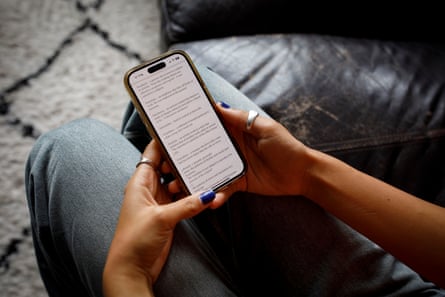
As a kid, I consumed literature until my vision became unfocused. When it was time for my GCSEs, I demonstrated the persistence of a monk, studying for hours on end. However, in more recent times, I’ve seen that ability for deep focus erode into endless scrolling on my device. My attention span now retracts like a slug at the slightest touch. Reading for enjoyment now resembles endurance training rather than nourishment. For someone whose profession involves writing, this presents both a career risk and a source of sadness. I aimed to regain that mental flexibility, to stop the decline of my cognitive faculties.
Approximately a year ago, I committed to a small promise: whenever I encountered an unfamiliar word – whether in a book, article, or casual chat – I would look it up and jot it down. Nothing fancy, no ornate journal or luxury pen. Just a running list maintained, ironically, on my phone. Every week, I would dedicate a few minutes to revisiting the list in hopes of embedding the word into my memory.
The list has now grown to nearly 20 pages, and this simple ritual has been subtly transformative. The benefit is less about showing off with unusual adjectives – which, let’s be honest, can make one seem unbearable – and more about the mental exercises of the practice. Each instance I research and note a word, I sense a gentle stretch, as if a previously neglected area of my mind is starting to work again. Even if I never use “eidolon” in a discussion, the very act of recognizing, cataloging, and reviewing it breaks the slide into passive, barely engaged attention.

Additionally, there is a journaling aspect to it – it serves as a sort of diary, a record of my reading journey, my thoughts, and the voices I’ve been listening to.
However, maintaining this habit is not straightforward. It can often be highly impractical. If I’m reading on public transport, I have to pause mid-sentence, pull out my phone, and type “millenarianism” into my Google doc while doing my best to avoid elbowing the stranger next to me. It can turn my reading into an exasperating crawl. (The Kindle, with its embedded dictionary, is far more forgiving). And then there’s the reviewing process (which I frequently forget), dutifully scrolling through my expanding vocabulary list as if preparing for a language quiz.
Realistically, I probably use only about 5% of these words in my daily conversation. “Incorrigible” made the list. “Lugubrious” too. Yet most of them remain like artifacts in a museum – appreciated and documented, but rarely utilized.
Nevertheless, it has sharpened my mind significantly. I find myself reaching for a more diverse range of adjectives instead of the same old few, increasingly opting for something exact and potent. Few experiences are more gratifying than discovering the precise word you were seeking – akin to finding that elusive puzzle piece that completes the image.
In a time when our gadgets drain our attention with relentless efficiency, it feels rebellious to use mine as an instrument for deep thinking. And it has restored something I thought I had lost – the joy of exercising a brain that, after years of mindless scrolling, is finally awakening once more.
Do you have thoughts on the matters addressed in this article? If you wish to send a response of up to 300 words via email to be considered for inclusion in our letters section, please click here.

